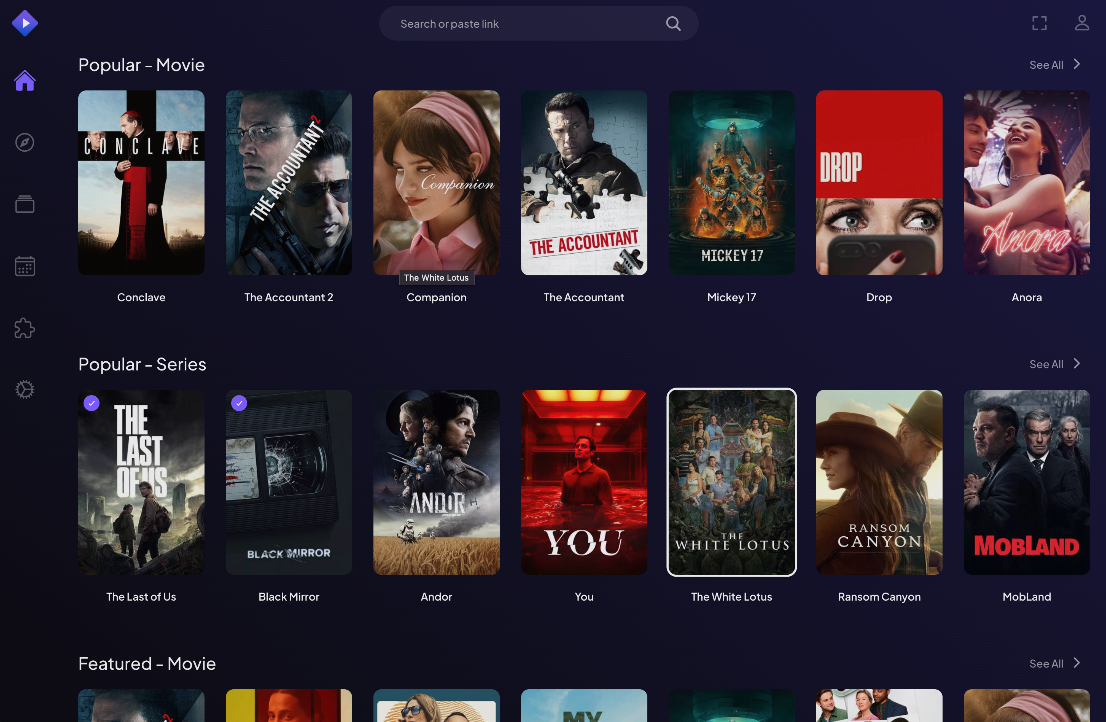What is Stremio?
How Stremio Works?
Where to find open-source code?
Sick of paying for six different streaming services? Me too. That's how I found Stremio last year. It's this weird little app that pulls shows from all over the web, and honestly, it saved me about $50 a month. But before I downloaded it, I had one big worry: is Stremio safe? After using it for months and poking around in its code (yeah, I'm that guy), here's what I learned about this open-source player.
What Is Stremio?
At its core, Stremio serves as a hub for your viewing habits. Think of it as a digital media shelf that doesn't store videos itself but points you to where they're available online. It's not hosting movies or shows – instead, it uses small software pieces called addons to find content from various corners of the internet.

Stremio Web / Stremio Desktop UI
The Open-Source Advantage
Safety comes built-in with Stremio's transparent approach to software. You can see most of the code on GitHub (https://github.com/Stremio) – nothing hidden, no secret doors. This public code means:
- Review the code for security vulnerabilities
- Verify that no malicious functions exist within the application
- Contribute improvements to the codebase
- Build custom versions of the application
This transparency makes Stremio fundamentally different from closed-source alternatives where users must trust the developer without seeing what's happening behind the scenes.
How Stremio Works?
Understanding Stremio's architecture helps explain its security model:
Core Application: The main Stremio application is responsible for the user interface and media playback capabilities.
Addon System: Content discovery happens through addons, which are essentially catalogs of links to content available elsewhere on the internet.
Separation of Concerns: The Stremio application itself doesn't host or provide any copyrighted content—it only provides the framework for discovering and organizing media.
Security Aspects to Consider
1. Application Security
The Stremio desktop client undergoes continuous development with regular updates to address bugs and security issues. Being open-source means that security researchers can audit the code, potentially identifying vulnerabilities before they become problematic.
2. Addon Ecosystem
An important security feature of Stremio is its addon architecture. All addons, whether official or third-party, operate in a way that prevents them from accessing user data:
- Addons function as simple content catalogs with no access to user accounts
- The addon system is built with a strict separation that prevents addons from collecting personal information
- Addons cannot see user data, account details, or device information
- This architectural design makes all addons inherently safe from a privacy perspective
3. Privacy Considerations
Stremio's privacy policy indicates limited data collection, primarily for service improvement. The application doesn't require extensive personal information beyond an optional account for syncing preferences across devices.
Where to Find the Open-Source Code
Transparency is key to Stremio's security proposition. You can examine the source code at:
- GitHub Organization: https://github.com/Stremio
- Web client application (also used for the Windows Shell): https://github.com/Stremio/stremio-web
- Core of the project: https://github.com/Stremio/stremio-core
By reviewing these repositories, technically inclined users can verify the software's behavior for themselves.
Conclusion
So, is Stremio safe? After months of using it, I'd say yes. The fact that anyone can peek at the code on GitHub is huge – no sneaky stuff hiding in there. I was worried about those addons at first, but they're basically just fancy bookmarks – they can't see my data or mess with my computer.
Look, nothing online is 100% risk-free, but Stremio's done its homework on the security front. What won me over was seeing how quickly bugs get squashed when users spot them – try getting that kind of response from the big streaming companies!
Bottom line: if you're tired of being nickel-and-dimed by subscription services and want something that respects your privacy, Stremio's worth a shot. Just keep your system updated and maybe use a VPN, which is good advice for anything these days.







